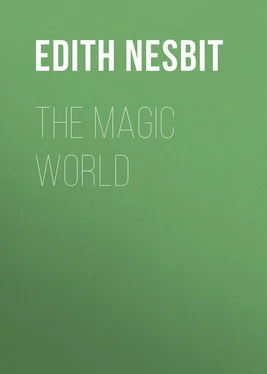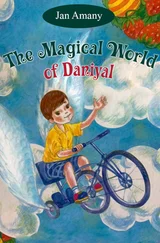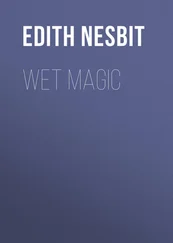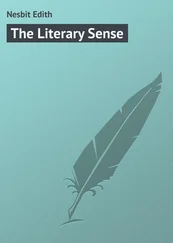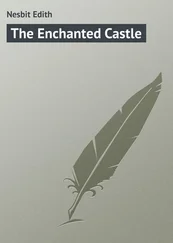Edith Nesbit - The Magic World
Здесь есть возможность читать онлайн «Edith Nesbit - The Magic World» — ознакомительный отрывок электронной книги совершенно бесплатно, а после прочтения отрывка купить полную версию. В некоторых случаях можно слушать аудио, скачать через торрент в формате fb2 и присутствует краткое содержание. Жанр: foreign_prose, на английском языке. Описание произведения, (предисловие) а так же отзывы посетителей доступны на портале библиотеки ЛибКат.
- Название:The Magic World
- Автор:
- Жанр:
- Год:неизвестен
- ISBN:нет данных
- Рейтинг книги:5 / 5. Голосов: 1
-
Избранное:Добавить в избранное
- Отзывы:
-
Ваша оценка:
- 100
- 1
- 2
- 3
- 4
- 5
The Magic World: краткое содержание, описание и аннотация
Предлагаем к чтению аннотацию, описание, краткое содержание или предисловие (зависит от того, что написал сам автор книги «The Magic World»). Если вы не нашли необходимую информацию о книге — напишите в комментариях, мы постараемся отыскать её.
The Magic World — читать онлайн ознакомительный отрывок
Ниже представлен текст книги, разбитый по страницам. Система сохранения места последней прочитанной страницы, позволяет с удобством читать онлайн бесплатно книгу «The Magic World», без необходимости каждый раз заново искать на чём Вы остановились. Поставьте закладку, и сможете в любой момент перейти на страницу, на которой закончили чтение.
Интервал:
Закладка:
He stood still, looking down at the little mould of clay in his hand – so still that his mother got up and came close to him.
‘Quentin,’ she said, ‘darling, what is it?’
He leaned his head against her.
‘I won’t make a fuss,’ he said, ‘but you can’t begin to be brave the very first minute. Or, if you do, you can’t go on being.’
And with that he began to cry, though he had not cried after the affair of the grocer’s boy.
The thought of school was not so terrible to Quentin as Mrs. de Ward had thought it would be. In fact, he rather liked it, with half his mind; but the other half didn’t like it, because it meant parting from his mother who, so far, had been his only friend. But it was exciting to be taken to Southampton, and have all sorts of new clothes bought for you, and a school trunk, and a little polished box that locked up, to keep your money in and your gold sleeve links, and your watch and chain when you were not wearing them.
Also the journey to Salisbury was made in a motor, which was very exciting of course, and rather took Quentin’s mind off the parting with his mother, as she meant it should. And there was a very grand lunch at The White Hart Hotel at Salisbury, and then, very suddenly indeed, it was good-bye, good-bye, and the motor snorted, and hooted, and throbbed, and rushed away, and mother was gone, and Quentin was at school.
I believe it was quite a nice school. It was in a very nice house with a large quiet garden, and there were only about twenty boys. And the masters were kind, and the boys no worse than other boys of their age. But Quentin hated it from the very beginning. For when his mother had gone the Headmaster said: ‘School will be out in half-an-hour; take a book, de Ward,’ and gave him Little Eric and his Friends , a mere baby book. It was too silly. He could not read it. He saw on a shelf near him, Smith’s Antiquities , a very old friend of his, so he said: ‘I’d rather have this, please.’
‘You should say “sir” when you speak to a master,’ the Head said to him. ‘Take the book by all means.’ To himself the Head said, ‘I wish you joy of it, you little prig.’
When school was over, one of the boys was told to show Quentin his bed and his locker. The matron had already unpacked his box and his pile of books was waiting for him to carry it over.
‘Golly, what a lot of books,’ said Smithson minor. ‘What’s this? Atlantis ? Is it a jolly story?’
‘It isn’t a story,’ said Quentin. And just then the classical master came by. ‘What’s that about Atlantis ?’ he said.
‘It’s a book the new chap’s got,’ said Smithson.
The classical master glanced at the book.
‘And how much do you understand of this?’ he asked, fluttering the leaves.
‘Nearly all, I think,’ said Quentin.
‘You should say “sir” when you speak to a master,’ said the classical one; and to himself he added, ‘little prig.’ Then he said to Quentin: ‘I am afraid you will find yourself rather out of your element among ordinary boys.’
‘I don’t think so,’ said Quentin calmly, adding as an afterthought ‘sir.’
‘I’m glad you’re so confident,’ said the classical master and went.
‘My word,’ said Smithson minor in a rather awed voice, ‘you did answer him back.’
‘Of course I did,’ said Quentin. ‘Don’t you answer when you’re spoken to?’
Smithson minor informed the interested school that the new chap was a prig, but he had a cool cheek, and that some sport might be expected.
After supper the boys had half an hour’s recreation. Quentin, who was tired, picked up a book which a big boy had just put down. It was the Midsummer Night’s Dream .
‘Hi, you kid,’ said the big boy, ‘don’t pretend you read Shakespeare for fun. That’s simple swank, you know.’
‘I don’t know what swank is,’ said Quentin, ‘but I like the Midsummer whoever wrote it.’
‘Whoever what ?’
‘Well,’ said Quentin, ‘there’s a good deal to be said for its being Bacon who wrote the plays.’
Of course that settled it. From that moment, he was called not de Ward, which was strange enough, but Bacon. He rather liked that. But the next day it was Pork, and the day after Pig, and that was unbearable.
He was at the bottom of his class, for he knew no Latin as it is taught in schools, only odd words that English words come from, and some Latin words that are used in science. And I cannot pretend that his arithmetic was anything but contemptible.
The book called Atlantis had been looked at by most of the school, and Smithson major, not nearly such an agreeable boy as his brother, hit on a new nickname.
‘Atlantic Pork’s a good name for a swanker,’ he said. ‘You know the rotten meat they have in Chicago.’
This was in the playground before dinner. Quentin, who had to keep his mouth shut very tight these days, because, of course, a boy of ten cannot cry before other chaps, shut the book he was reading and looked up.
‘I won’t be called that,’ he said quietly.
‘Who said you wouldn’t?’ said Smithson major, who, after all, was only twelve. ‘I say you will.’
‘If you call me that I shall hit you,’ said Quentin, ‘as hard as I can.’
A roar of laughter went up, and cries of, ‘Poor old Smithson’ – ‘Apologise, Smithie, and leave the omnibus.’
‘And what should I be doing while you were hitting me?’ asked Smithson contemptuously.
‘I don’t know and I don’t care,’ said Quentin.
Smithson looked round. No master was in sight. It seemed an excellent opportunity to teach young de Ward his place.
‘Atlantic pig-swine,’ he said very deliberately. And Quentin sprang at him, and instantly it was a fight.
Now Quentin had only once fought – really fought – before. Then it was the grocer’s boy and he had been beaten. But he had learned something since. And the chief conclusion he now drew from his memories of that fight was that he had not hit half hard enough, an opinion almost universal among those who have fought and not won.
As the fist of Smithson major described a half circle and hurt his ear very much, Quentin suddenly screwed himself up and hit out with his right hand, straight, and with his whole weight behind the blow as the grocer’s boy had shown him. All his grief for his wounded father, his sorrow at the parting from his mother, all his hatred of his school, and his contempt for his schoolfellows went into that blow. It landed on the point of the chin of Smithson major who fell together like a heap of rags.
‘Oh,’ said Quentin, gazing with interest at his hand – it hurt a good deal but he looked at it with respect – ‘I’m afraid I’ve hurt him.’
He had forgotten for a moment that he was in an enemies’ country, and so, apparently, had his enemies.
‘Well done, Piggy! Bravo, young ’un! Well hit, by Jove!’
Friendly hands thumped him on the back. Smithson major was no popular hero.
Quentin felt – as his schoolfellows would have put it – bucked. It is one thing to be called Pig in enmity and derision. Another to be called Piggy – an affectionate diminutive, after all – to the chorus of admiring smacks.
‘Get up, Smithie,’ cried the ring. ‘Want any more?’
It appeared that Smithie did not want any more. He lay, not moving at all, and very white.
‘I say,’ the crowd’s temper veered, ‘you’ve killed him, I expect. I wouldn’t like to be you, Bacon.’
Pig, you notice, for aggravation – Piggy in enthusiastic applause. In the moment of possible tragedy the more formal Bacon.
Читать дальшеИнтервал:
Закладка:
Похожие книги на «The Magic World»
Представляем Вашему вниманию похожие книги на «The Magic World» списком для выбора. Мы отобрали схожую по названию и смыслу литературу в надежде предоставить читателям больше вариантов отыскать новые, интересные, ещё непрочитанные произведения.
Обсуждение, отзывы о книге «The Magic World» и просто собственные мнения читателей. Оставьте ваши комментарии, напишите, что Вы думаете о произведении, его смысле или главных героях. Укажите что конкретно понравилось, а что нет, и почему Вы так считаете.
